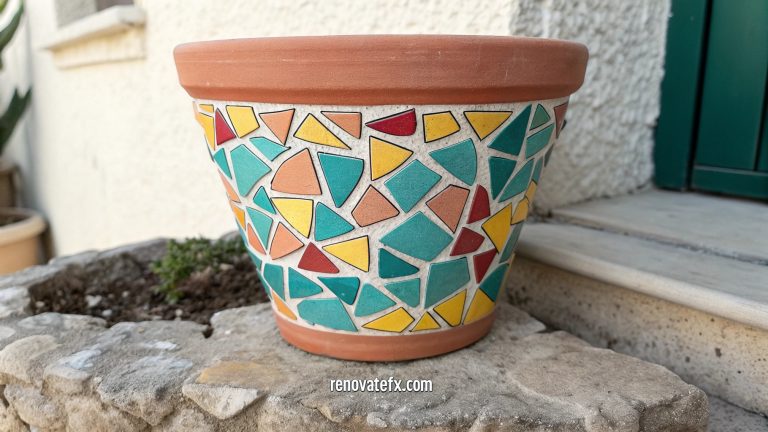20 Natural Mosquito Repelling Plants for Your Garden
Summer evenings in the garden can quickly turn from pleasant to frustrating when mosquitoes arrive.
Instead of reaching for chemical repellents, consider adding natural solutions to your outdoor spaces.
Various plants contain compounds that naturally deter these bothersome insects, creating both a beautiful and functional landscape.
These mosquito repelling plants not only help reduce unwanted buzzing visitors but also add fragrance, color, and texture to your garden beds, containers, and outdoor living areas.
From herbs you can cook with to flowering plants that enhance your garden’s aesthetic appeal, this collection offers multiple options for every gardening style and climate zone.
1. Citronella Grass
Widely recognized for its strong lemony scent, citronella grass releases an oil that masks other attractants mosquitoes seek.
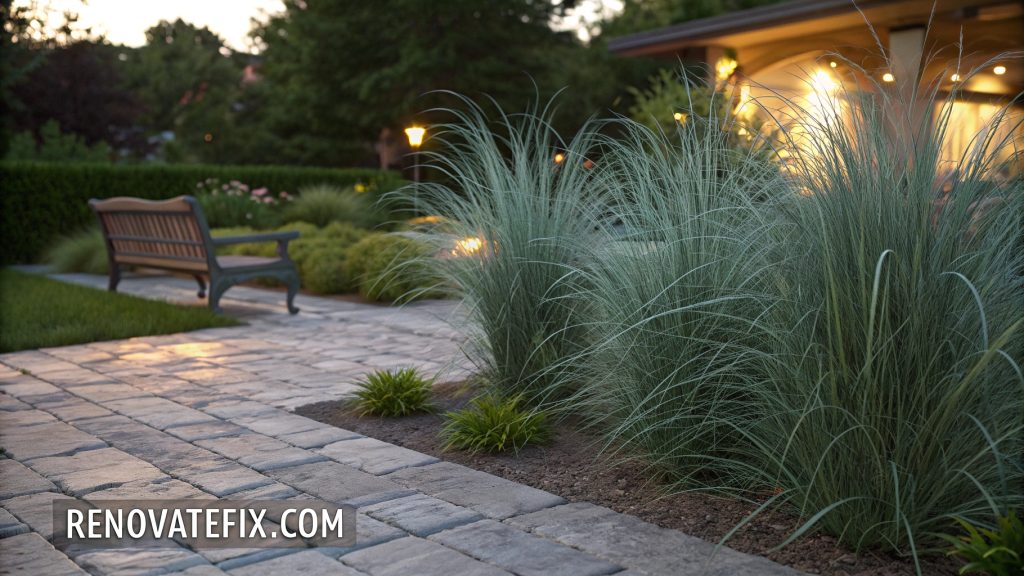
Growing tall with blade-like foliage, this tropical grass makes an impressive statement in gardens or large containers.
For maximum effectiveness, place several clumps around seating areas or pathways where you frequently gather outdoors.
Crushing or bruising leaves releases more potent oils when additional protection becomes necessary during peak mosquito activity.
2. Lavender
This aromatic perennial boasts beautiful purple flower spikes and silver-green foliage that mosquitoes simply cannot stand.
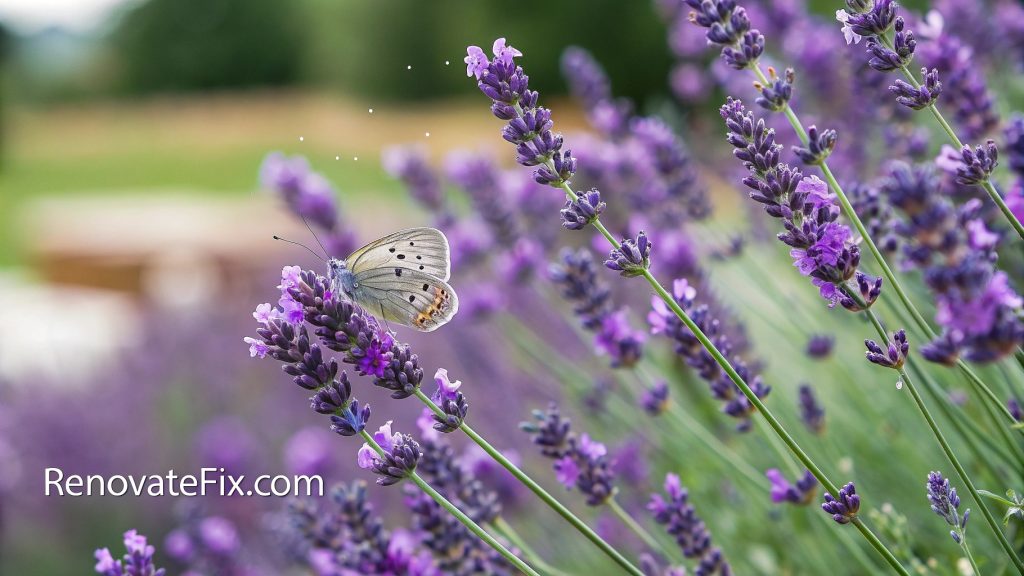
Beyond repelling flying pests, lavender attracts beneficial pollinators while providing dried flowers for sachets and culinary purposes.
Plant in full sun locations with well-draining soil along walkways, borders, or container gardens where its fragrance can be appreciated.
Different varieties offer varying heights, colors, and bloom times for extended mosquito protection throughout growing seasons.
3. Lemon Balm
Belonging to mint family, lemon balm produces bright green crinkled leaves emitting strong citrus scent mosquitoes avoid.
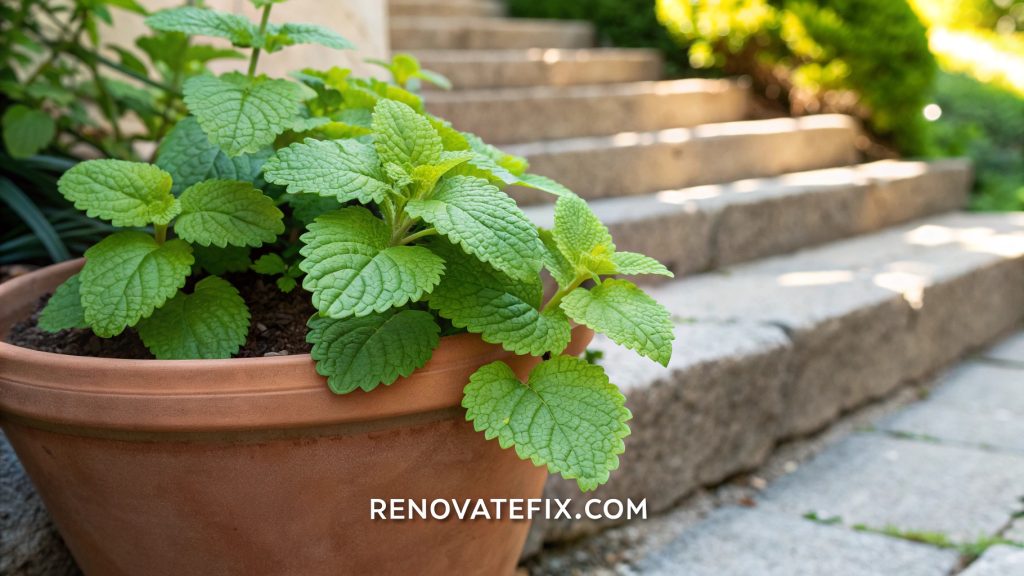
Growing vigorously in sun or partial shade, this herb spreads readily through garden spaces, making it perfect for filling troublesome areas where mosquitoes gather.
Harvested leaves work wonderfully brewed into teas or muddled into summer drinks, doubling its practical garden value.
Consider growing in containers if space constraints exist or to control its enthusiastic growth habit.
4. Rosemary
Woody stems supporting needle-like aromatic foliage make rosemary both ornamental and functionally mosquito-deterrent.

Growing upright or trailing depending on variety chosen, this Mediterranean herb thrives in sunny locations with minimal watering once established.
Placement near outdoor dining spaces offers convenient culinary access while creating protective barrier against mosquitoes during meals.
Prune regularly to maintain desired shape and promote more dense growth that maximizes insect-repelling oil production.
5. Marigolds
Vibrant orange and yellow blooms contain pyrethrum, compound known for repelling various insects beyond just mosquitoes.

Annual marigolds grow quickly from seed, producing multiple flowers throughout growing season until frost arrives.
Border vegetable gardens with these cheerful plants for dual protection of edible crops against multiple pest species.
Different varieties range from tiny six-inch dwarf types to impressive three-foot tall specimens offering flexibility for various garden applications.
6. Catnip
Research indicates catnip proves approximately ten times more effective than DEET for repelling mosquitoes through its natural nepetalactone oil.
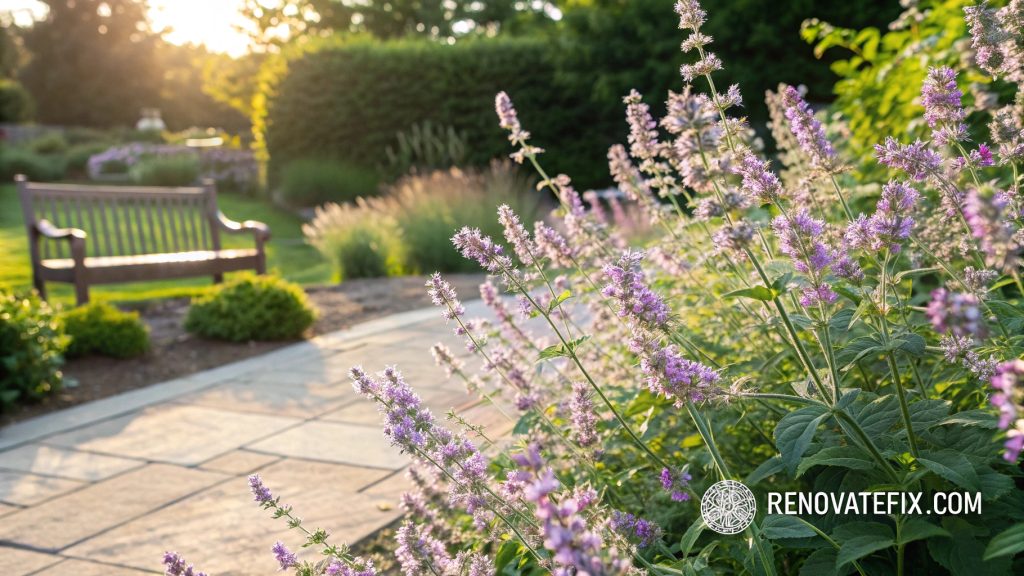
Small white-purple flower spikes emerge above fuzzy green foliage, attracting beneficial insects while deterring problematic ones.
While cats may damage plants through enthusiastic rolling, strategic placement can minimize feline destruction while maximizing mosquito protection.
Consider growing multiple plants throughout landscape for broader coverage across outdoor living spaces.
7. Basil
Strong aromatic oils make basil particularly effective against mosquitoes while providing essential cooking herb for summer meals.
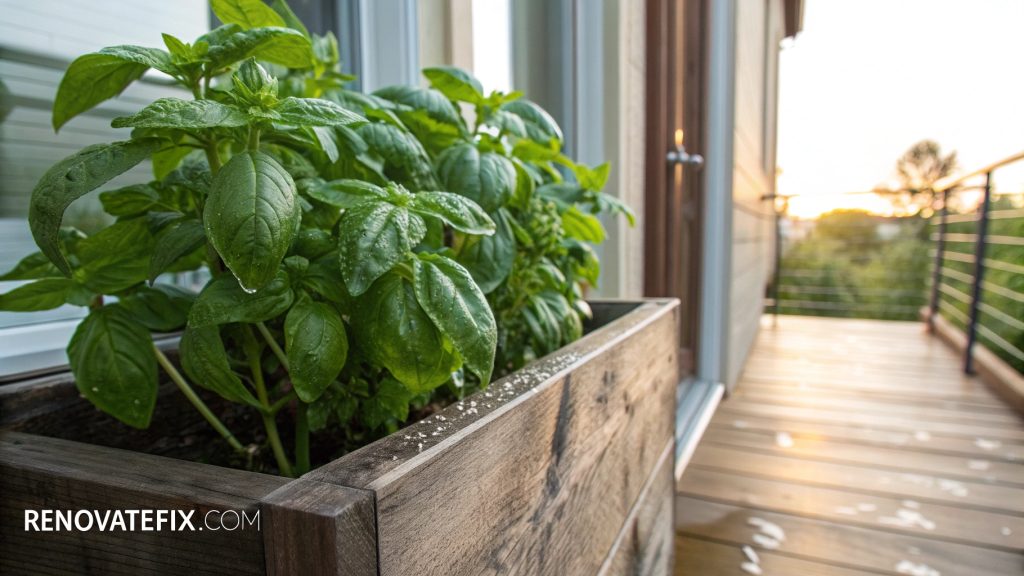
Growing quickly during warm months, basil prefers consistently moist soil and protection from harsh afternoon sun.
Place pots near doorways, windows, or outdoor dining areas for both convenient harvesting and mosquito deterrence.
Different varieties offer unique scent profiles – lemon basil proves particularly effective against flying insects compared to sweet basil types.
8. Peppermint
Mentholated aroma from peppermint foliage creates environment mosquitoes actively avoid while providing refreshing scent humans find pleasant.

Fast-growing and spreading aggressively when planted directly into garden beds, this vigorous herb works wonderfully in containers where growth remains controlled.
Harvest regularly to promote bushy growth pattern and prevent flowering, which maintains highest oil concentration.
Crushed leaves rubbed directly on skin provide temporary relief during outdoor activities when mosquitoes become particularly bothersome.
9. Lemongrass
Architectural grass containing high concentration of citral oil creates visual impact while naturally repelling mosquitoes from garden spaces.

Growing rapidly during warm months, lemongrass forms impressive clumps reaching four feet tall with arching blades.
Harvest stalks for authentic Asian cuisine while simultaneously maintaining plant size appropriate for garden spaces.
Cold-sensitive perennial requires winter protection in cooler climates but grows enthusiastically during warm summer months when mosquito protection proves most necessary.
10. Eucalyptus
Silver-blue foliage containing powerful essential oils creates striking visual contrast while actively deterring mosquitoes from surrounding areas.

Growing rapidly into small tree form, eucalyptus works wonderfully in large containers where size remains manageable through seasonal pruning.
Dried branches and leaves maintain mosquito-repelling properties, making them useful indoors during winter months.
Consider growing annual varieties in cooler climates where perennial types cannot survive freezing temperatures.
11. Mint
Crisp refreshing scent makes various mint varieties unwelcoming to mosquitoes while providing endless culinary possibilities.

Growing low with spreading habit, mint creates effective ground cover in shady garden areas where other plants struggle.
Plant in buried containers to prevent aggressive spread throughout garden beds while maintaining mosquito-repelling benefits.
Regular harvesting stimulates new growth production with highest concentration of essential oils for maximum insect deterrence.
12. Pennyroyal
Low-growing member of mint family produces tiny purple flowers above aromatic foliage mosquitoes strongly avoid.
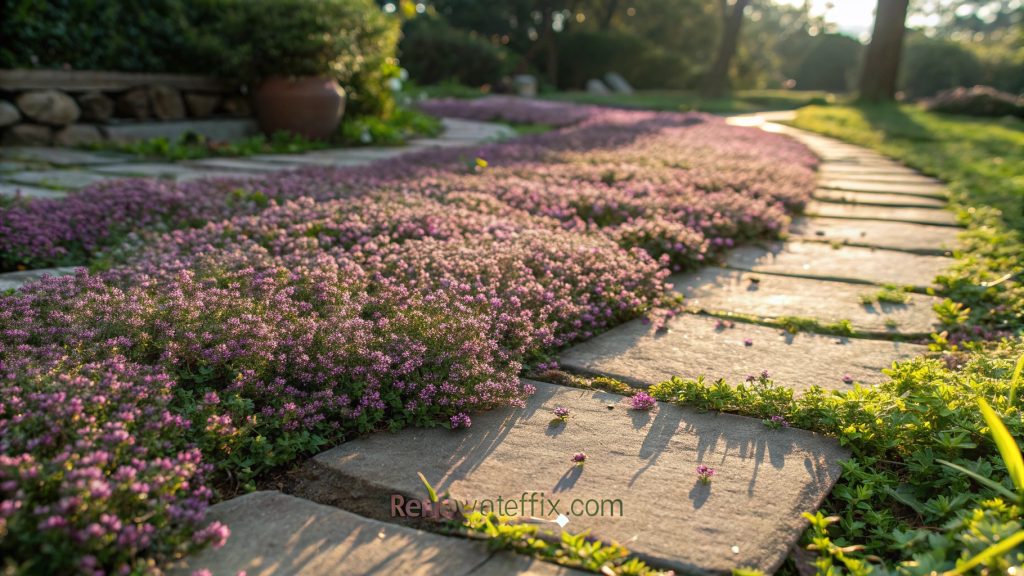
Creating dense mat when established, pennyroyal works effectively between stepping stones or as lawn alternative in smaller spaces.
Though toxic if consumed in large quantities, external use creates effective mosquito barrier around garden spaces.
Plant away from areas where pets might consume foliage or where small children play unsupervised.
13. Floss Flower (Ageratum)
Powder-blue fuzzy blooms contain coumarin, compound mosquitoes actively avoid when seeking landing spots.
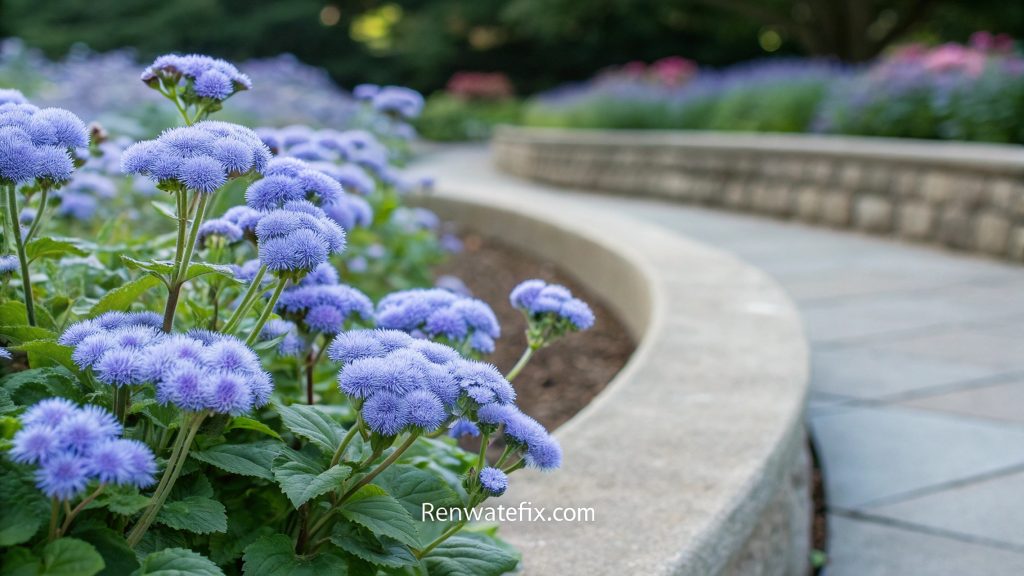
Annual flowers grow quickly from seed, blooming continuously throughout summer months until frost arrives.
Mass plantings create visually striking garden areas while maximizing mosquito-repelling benefits across broader spaces.
Lower-growing varieties work wonderfully in container plantings near seating areas where protection proves most beneficial during outdoor gatherings.
14. Bee Balm
Vibrant red, pink or purple blooms atop fragrant foliage attracts beneficial pollinators while deterring problematic mosquitoes from garden spaces.
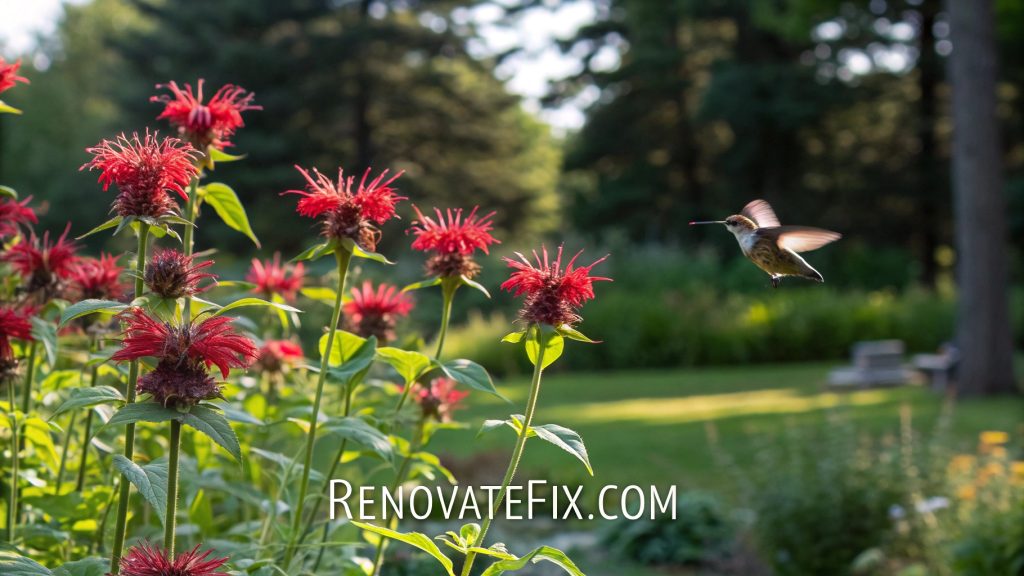
Growing upright with square stems characteristic of mint family relatives, bee balm creates dramatic visual impact during summer flowering period.
Plant in groups for most effective mosquito control while creating spectacular color display in perennial gardens.
Different varieties offer varying heights from compact 15-inch specimens to impressive four-foot tall varieties.
15. Geranium
Strongly scented foliage contains specific oil profile mosquitoes find particularly offensive even compared to other fragrant plants.

Available in countless flower colors, growth habits, and leaf patterns, geraniums offer versatility across garden applications while providing consistent mosquito protection.
Citronella-scented varieties prove especially effective through higher concentration of relevant repelling compounds.
Container plantings allow strategic placement around patios, balconies, or entrance areas where mosquito deterrence provides greatest benefit.
16. American Beautyberry
Purple berry clusters follow subtle flowers on arching branches, creating visual interest while naturally repelling mosquitoes through unique compounds.

Growing into medium-sized shrub form, beautyberry works wonderfully as foundation planting or mixed border specimen.
Wildlife value extends beyond insect control as birds eagerly consume berries during fall migration periods.
Crushed leaves historically rubbed on skin by indigenous peoples demonstrate longstanding recognition of mosquito-repelling properties.
17. Sage
Gray-green velvety foliage grows into woody stems over time, releasing aromatic oils mosquitoes actively avoid during garden visits.
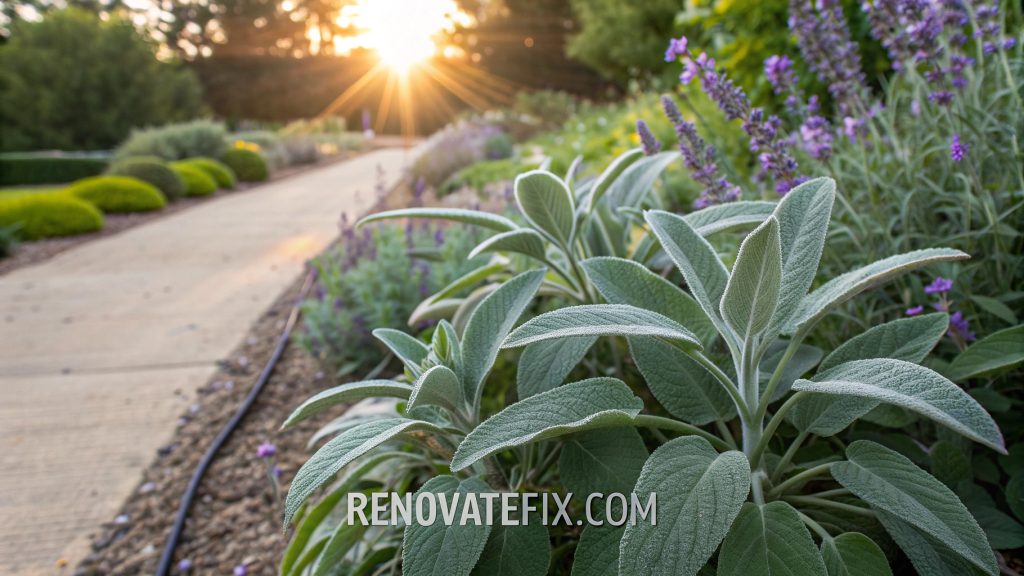
Drought-tolerant perennial nature makes sage perfect addition to water-wise landscapes where minimal maintenance remains priority.
Various cultivars offer different leaf colors, growth habits, and flower characteristics while maintaining mosquito-repelling benefits.
Small purple flowers attract beneficial pollinators during blooming periods, creating additional ecological garden value.
18. Lantana
Multicolored flower clusters change hues as they mature, creating kaleidoscopic effect while emitting mosquito-deterring fragrance from foliage.
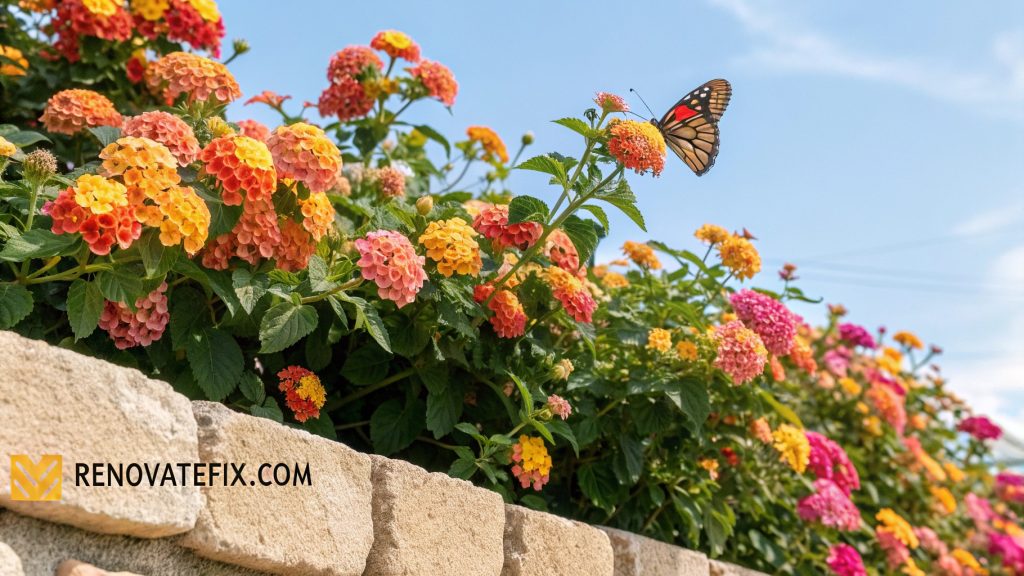
Heat-loving nature makes lantana perfect choice for challenging sunny locations where other plants struggle during summer months.
Trailing varieties cascade beautifully from hanging baskets or retaining walls, while upright forms create colorful hedges or specimen plantings.
Deer-resistant qualities add further benefit beyond mosquito control in gardens where browsing animals create challenges.
19. Allium
Ornamental onion family members produce globe-shaped blooms atop slender stems, creating architectural garden elements while naturally repelling mosquitoes.
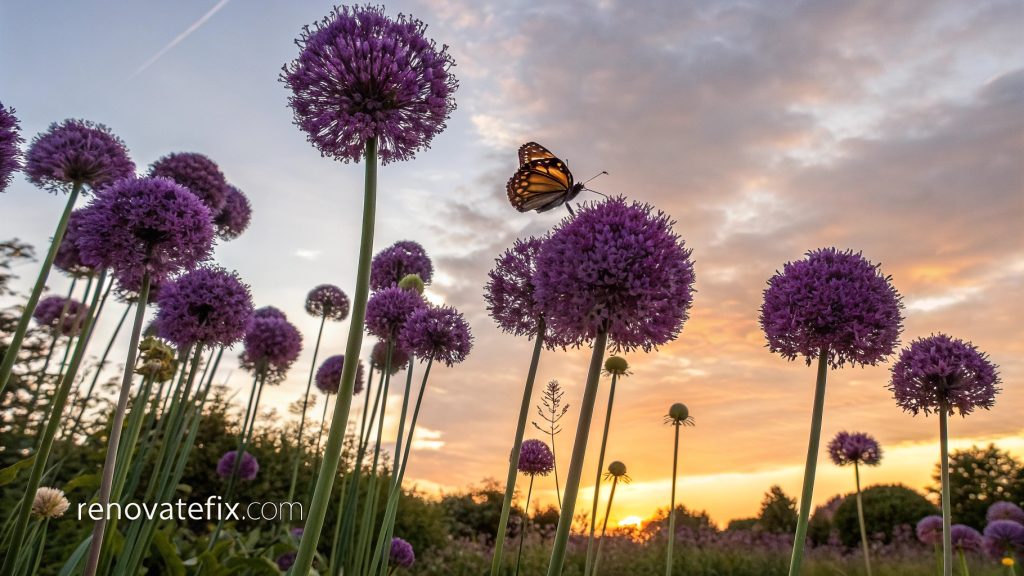
Bulbs multiply gradually over years, forming impressive drifts when left undisturbed in well-draining locations.
Plant fall-flowering varieties alongside spring-blooming types for extended seasonal mosquito protection throughout growing season.
Cut flowers last impressively long in arrangements, bringing mosquito-deterring benefits indoors during peak insect seasons.
20. Nasturtium
Round lily-pad foliage supports bright orange, yellow or red edible flowers that mosquitoes strongly avoid due to natural compounds.
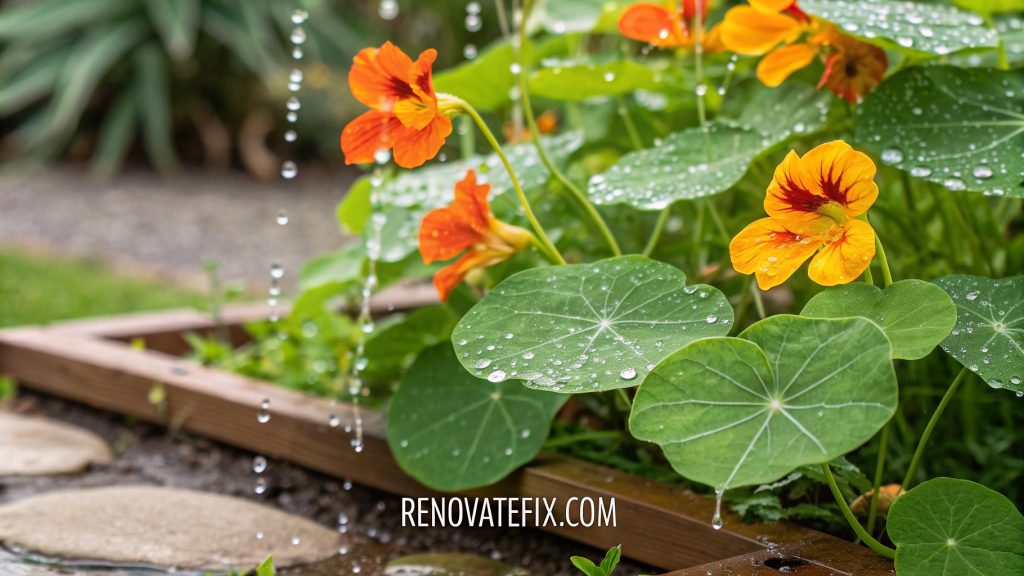
Growing quickly from direct-sown seeds, nasturtiums cascade wonderfully from containers or sprawl across garden beds filling spaces between permanent plantings.
Both flowers and leaves add peppery flavor to summer salads while contributing visual appeal beyond insect-repelling properties.
Different varieties offer varying growth habits from compact mounds to vigorous trailing forms for different garden applications.
Conclusion
Creating a mosquito-repelling garden involves more than simply adding a few plants—it requires thoughtful placement, regular maintenance, and understanding each plant’s unique properties.
By strategically incorporating these mosquito repelling plants throughout your landscape, you can establish multiple layers of natural protection while enhancing your outdoor living experience.
Remember that no plant completely eliminates mosquitoes, but a well-designed garden featuring these botanical allies significantly reduces populations in immediate areas.
Combined with proper water management to prevent breeding sites and regular garden maintenance, these plants form an effective first line of defense against mosquitoes.
The additional benefits of fragrance, visual appeal, and often culinary uses make these plants worthwhile additions regardless of their pest-control abilities.
With careful selection based on your hardiness zone, sun exposure, and garden style, these plants work harmoniously to create both a beautiful and functional outdoor space where you can enjoy summer evenings with fewer unwanted insect visitors.






